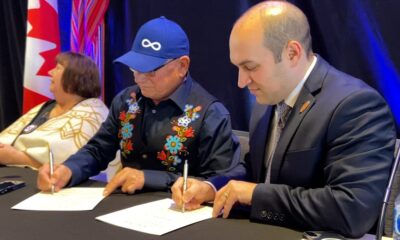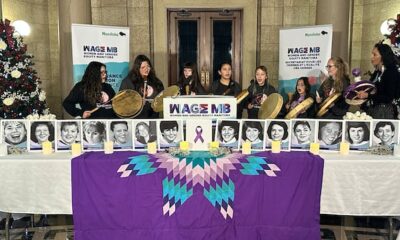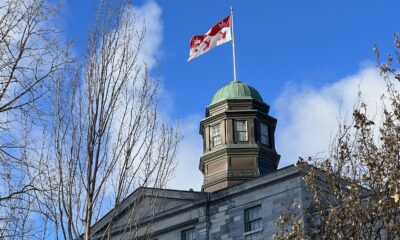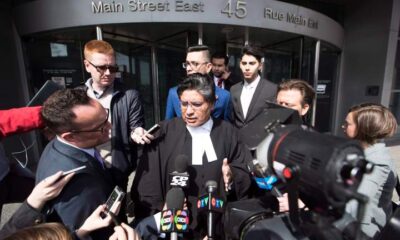Science
Indigenous Leaders Challenge Claims Downplaying Residential Schools
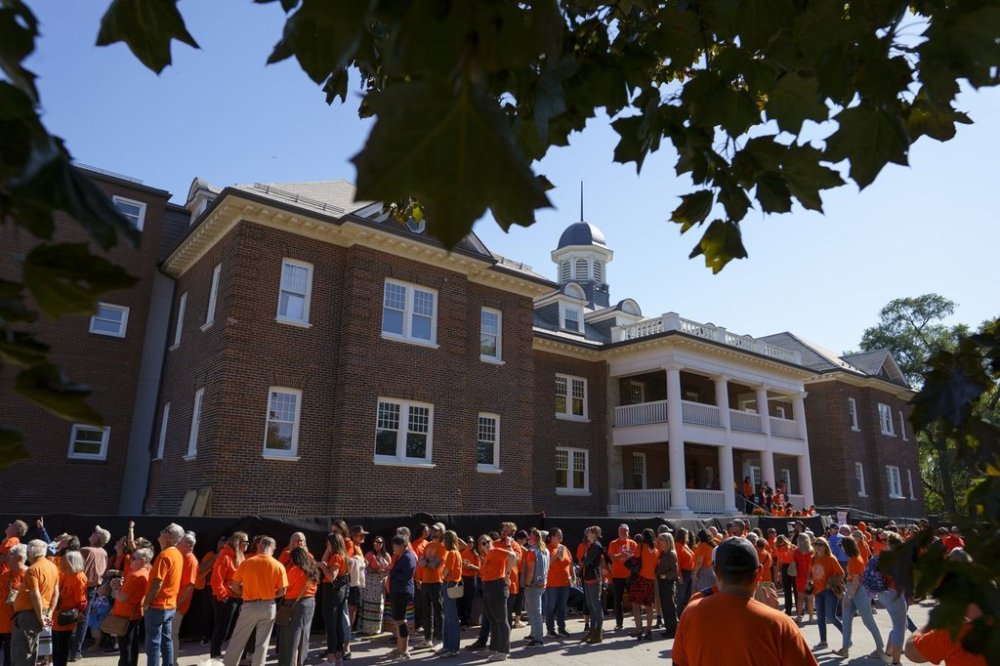
As Indigenous Peoples observed the National Day for Truth and Reconciliation on September 30, 2023, they faced ongoing challenges concerning the historical narrative surrounding residential schools. Public figures have made statements suggesting that the trauma associated with these institutions has been exaggerated, raising concerns among community leaders about the implications for reconciliation efforts across Canada.
Historical Context and Ongoing Denial
The Truth and Reconciliation Commission (TRC) was established following a legal settlement between the Canadian government and survivors of residential schools, which sought to address the cultural genocide experienced by Indigenous communities. Between 1857 and 1996, approximately 150,000 Indigenous children were forced into church-run, government-funded residential schools. These children were prohibited from speaking their languages and often faced abuse while being isolated from their families. The TRC estimates that around 6,000 children died in these institutions, though experts from the National Centre for Truth and Reconciliation suggest the actual number may be significantly higher.
The federal government recognized September 30 as the National Day for Truth and Reconciliation in 2021, following the release of preliminary findings from a ground-penetrating radar survey in Kamloops, B.C. This survey revealed around 200 potential unmarked graves at a former residential school site, highlighting the urgent need for public acknowledgment and remembrance of the injustices faced by Indigenous Peoples.
In the lead-up to this year’s observance, several prominent figures and political representatives published statements downplaying or outright denying the historical realities of residential schools. Former British Columbia Conservative MLA Dallas Brodie, who faced expulsion from his party for his controversial remarks, shared a video trailer titled “Making a Killing: Reconciliation, Genocide and Plunder in Canada.” Additionally, a staffer from the Conservative Party of British Columbia was dismissed for labeling the Survivors’ flag as a “disgrace” and a “fake” that perpetuates falsehoods about Canadian history.
Political Responses and Concerns
Maxime Bernier, leader of the People’s Party of Canada, also made headlines by dismissing the findings of unmarked graves and labeling the narrative of residential school genocide as a “hoax.” In response, Mandy Gull-Masty, Indigenous Services Minister, condemned his statements as lacking humility and respect. She asserted that such remarks undermine the truth and reconciliation process.
The Assembly of First Nations referred Bernier’s comments to the Royal Canadian Mounted Police (RCMP) as potential hate speech, emphasizing that Indigenous Peoples have faced discrimination and hate speech since Canada’s inception. Bernier countered by claiming that the Assembly’s National Chief, Cindy Woodhouse Nepinak, is more concerned with financial gain from government funding than with truth and reconciliation.
Historian Sean Carleton characterized the denial of residential school history as a strategy aimed at undermining survivors’ testimonies and the broader reconciliation movement. He stated, “It’s a constant sowing of seeds of doubt in things that we don’t need to be doubtful about, because we’ve already established the truth about them.”
In a legislative push, Leah Gazan introduced a private member’s bill aimed at criminalizing the denial of residential school experiences. Although the bill did not progress before the spring election, Gazan remains committed to advancing this initiative, citing the ongoing harm to survivors from denials of their suffering. “If we can’t keep survivors safe, we’ve got a problem,” she asserted, emphasizing the importance of honoring survivors’ stories.
Former Minister of Crown-Indigenous Relations Marc Miller remarked that 2021 marked a pivotal moment in Canadian awareness regarding residential schools. He noted that as non-Indigenous Canadians began to learn about this history, some individuals focused on inaccuracies in reports to claim that no harm occurred within these institutions. “Atrocities did occur, and they occurred in much the way people have described them. It’s a painful realization for a country like Canada to come to,” Miller stated.
Survivor testimonies reveal the profound impact of these institutions. One survivor shared that she preferred sitting on Miller’s right side because her left ear had been injured by punishment. Another recounted that playing the drum was the only time he felt safe from abuse. Miller emphasized the importance of recognizing these narratives, stating, “When you talk about denialism, you’re telling these people that what happened to them never occurred.”
The ongoing discourse surrounding residential schools reflects deeper societal challenges in acknowledging and reconciling with a painful past. As Indigenous leaders advocate for recognition and respect, they continue to confront attempts to distort the historical narrative, emphasizing the critical need for a truthful dialogue that honors the experiences of survivors.
This report was originally published by The Canadian Press on October 4, 2023.
-

 Politics4 weeks ago
Politics4 weeks agoSecwepemc First Nation Seeks Aboriginal Title Over Kamloops Area
-

 World5 months ago
World5 months agoScientists Unearth Ancient Antarctic Ice to Unlock Climate Secrets
-

 Entertainment5 months ago
Entertainment5 months agoTrump and McCormick to Announce $70 Billion Energy Investments
-

 Science5 months ago
Science5 months agoFour Astronauts Return to Earth After International Space Station Mission
-

 Lifestyle5 months ago
Lifestyle5 months agoTransLink Launches Food Truck Program to Boost Revenue in Vancouver
-

 Technology3 months ago
Technology3 months agoApple Notes Enhances Functionality with Markdown Support in macOS 26
-

 Lifestyle3 months ago
Lifestyle3 months agoManitoba’s Burger Champion Shines Again Amid Dining Innovations
-

 Top Stories2 months ago
Top Stories2 months agoUrgent Update: Fatal Crash on Highway 99 Claims Life of Pitt Meadows Man
-

 Politics4 months ago
Politics4 months agoUkrainian Tennis Star Elina Svitolina Faces Death Threats Online
-

 Sports5 months ago
Sports5 months agoSearch Underway for Missing Hunter Amid Hokkaido Bear Emergency
-

 Politics5 months ago
Politics5 months agoCarney Engages First Nations Leaders at Development Law Summit
-

 Technology5 months ago
Technology5 months agoFrosthaven Launches Early Access on July 31, 2025

